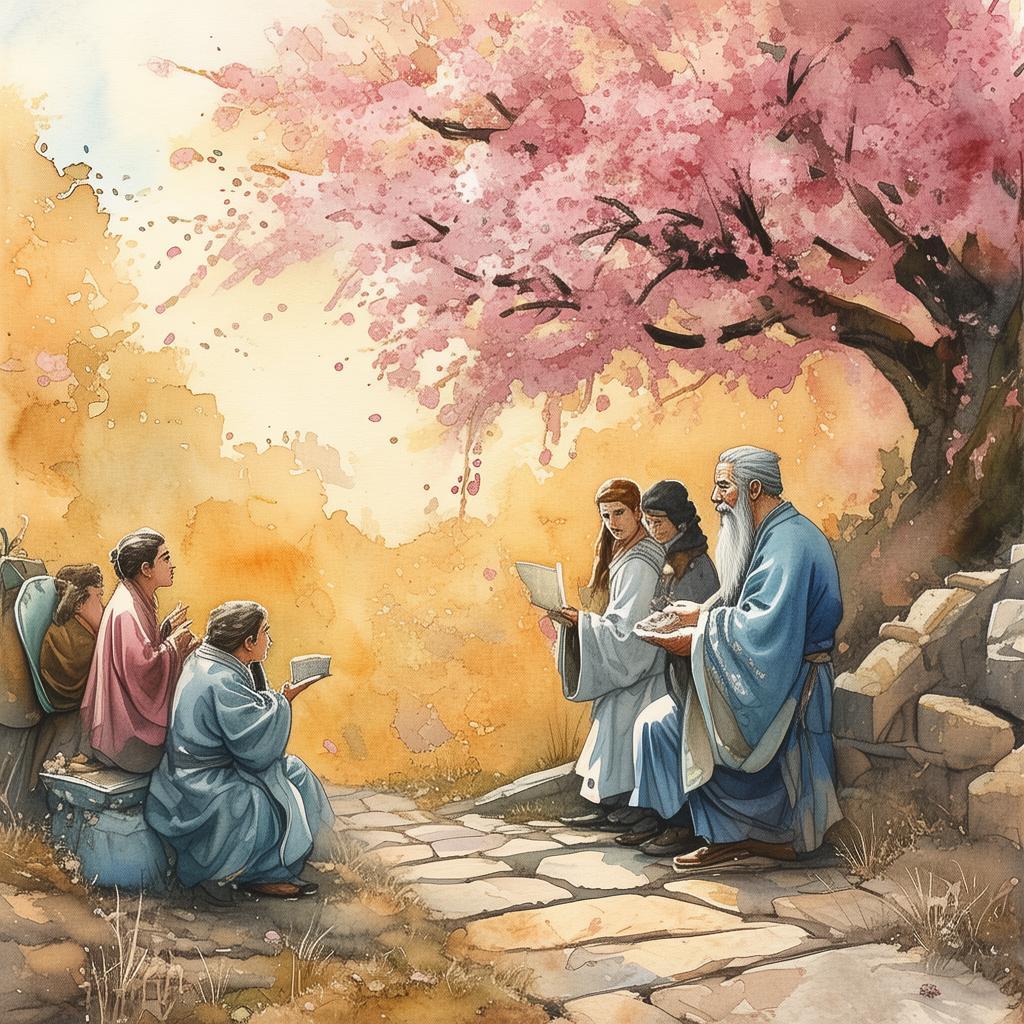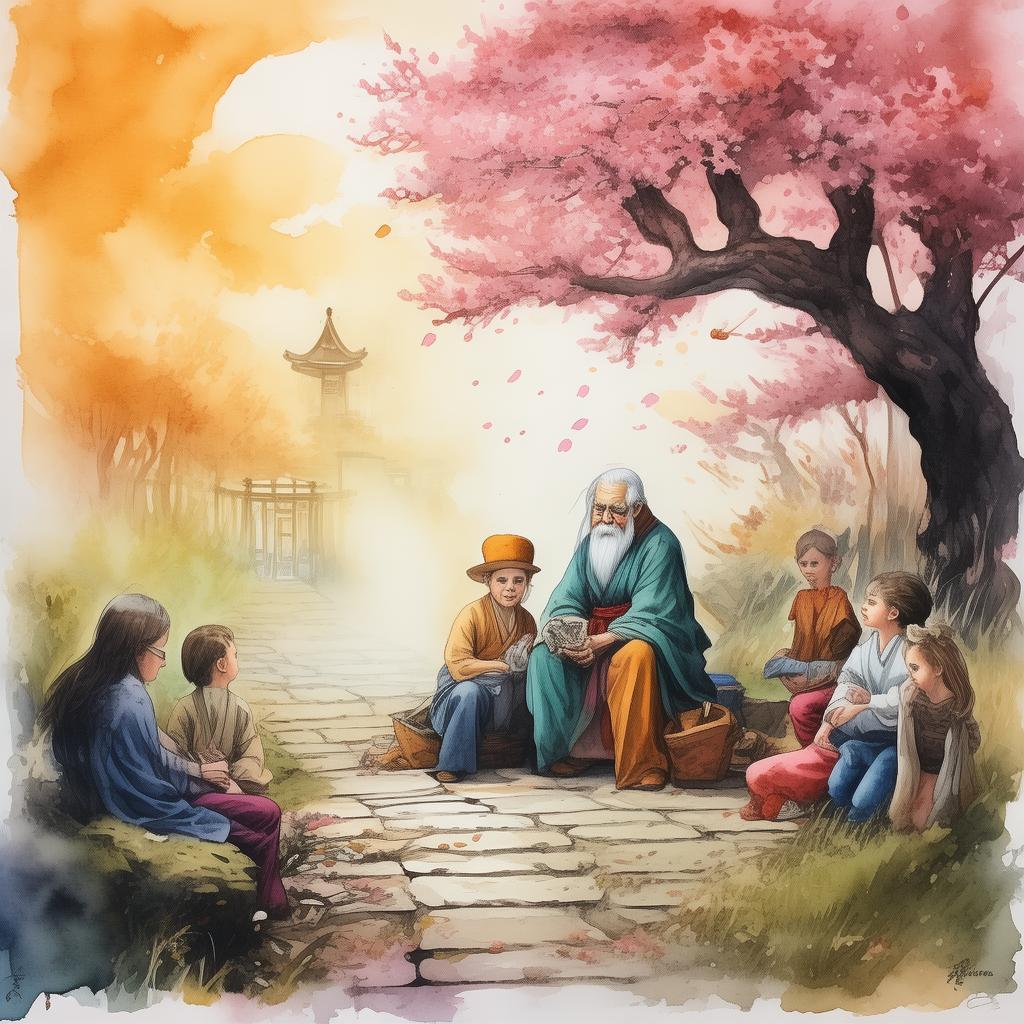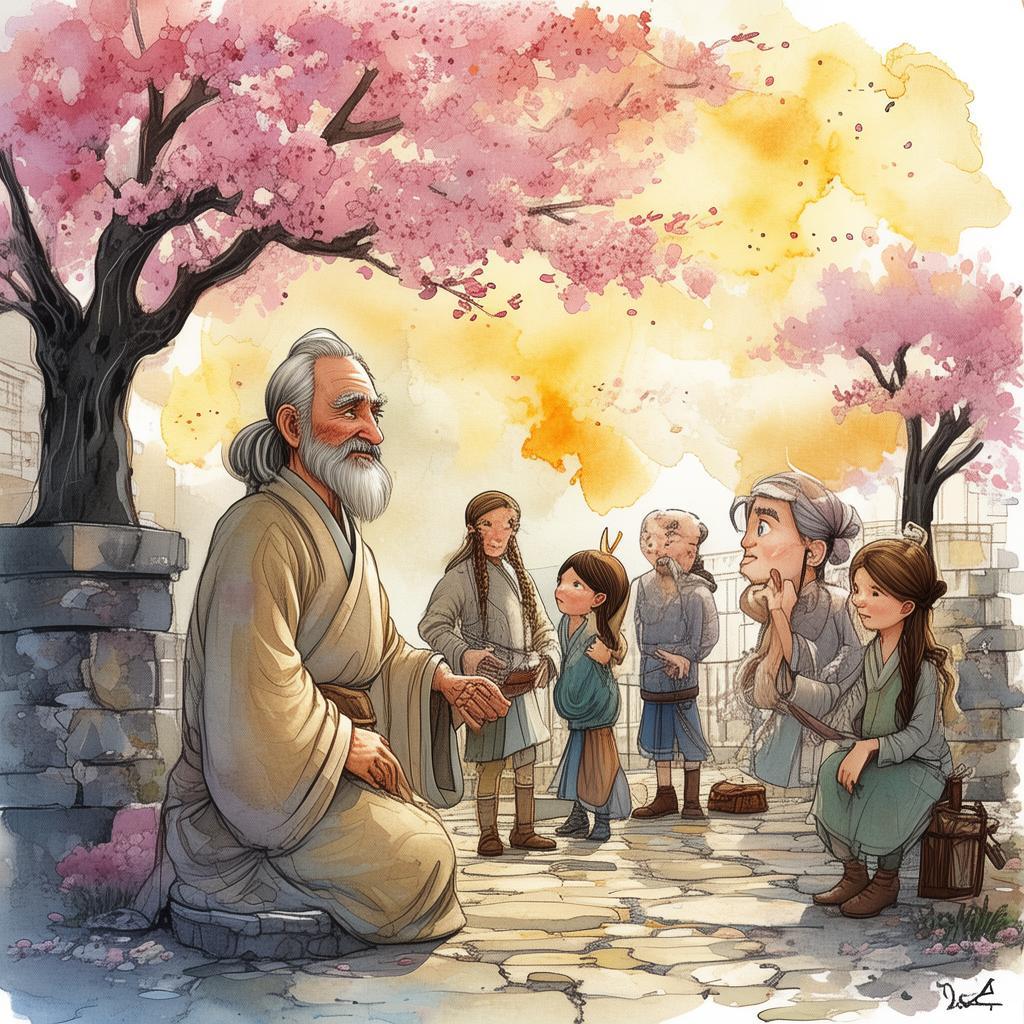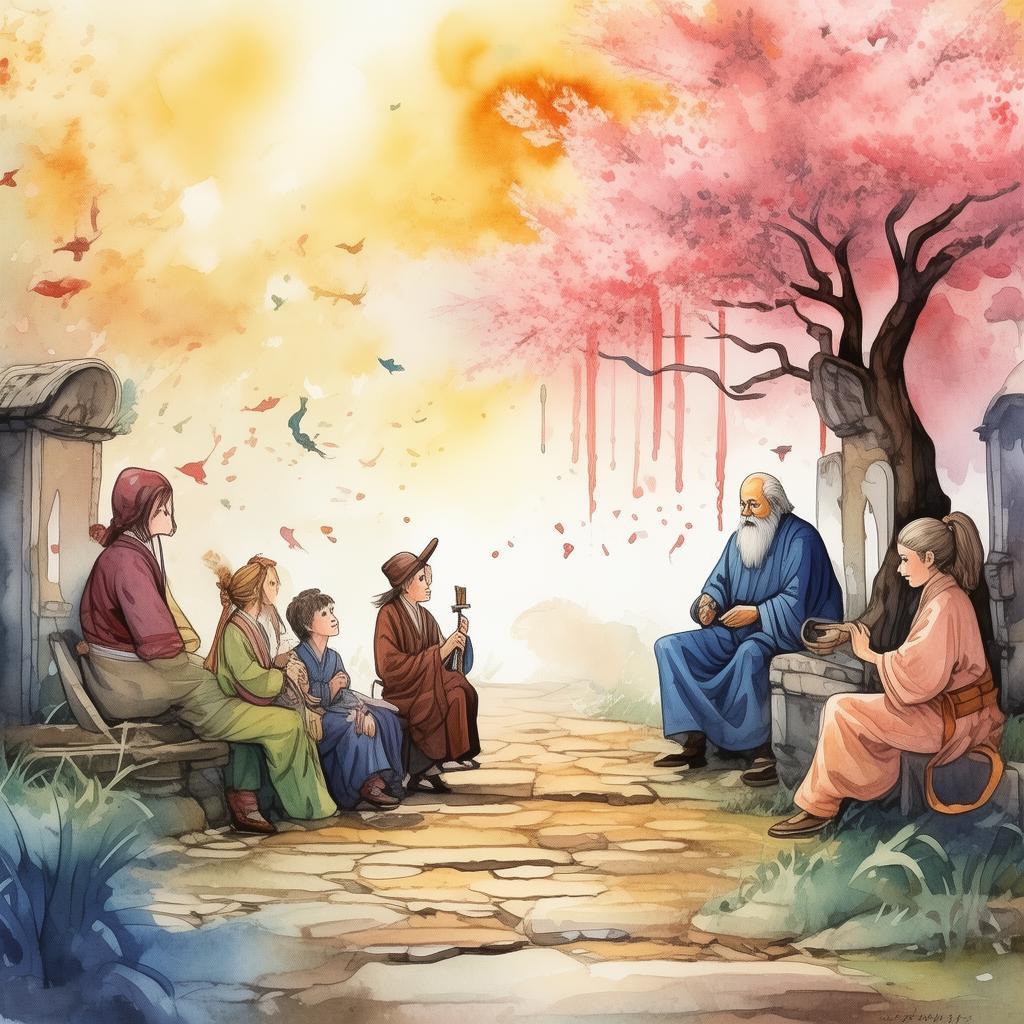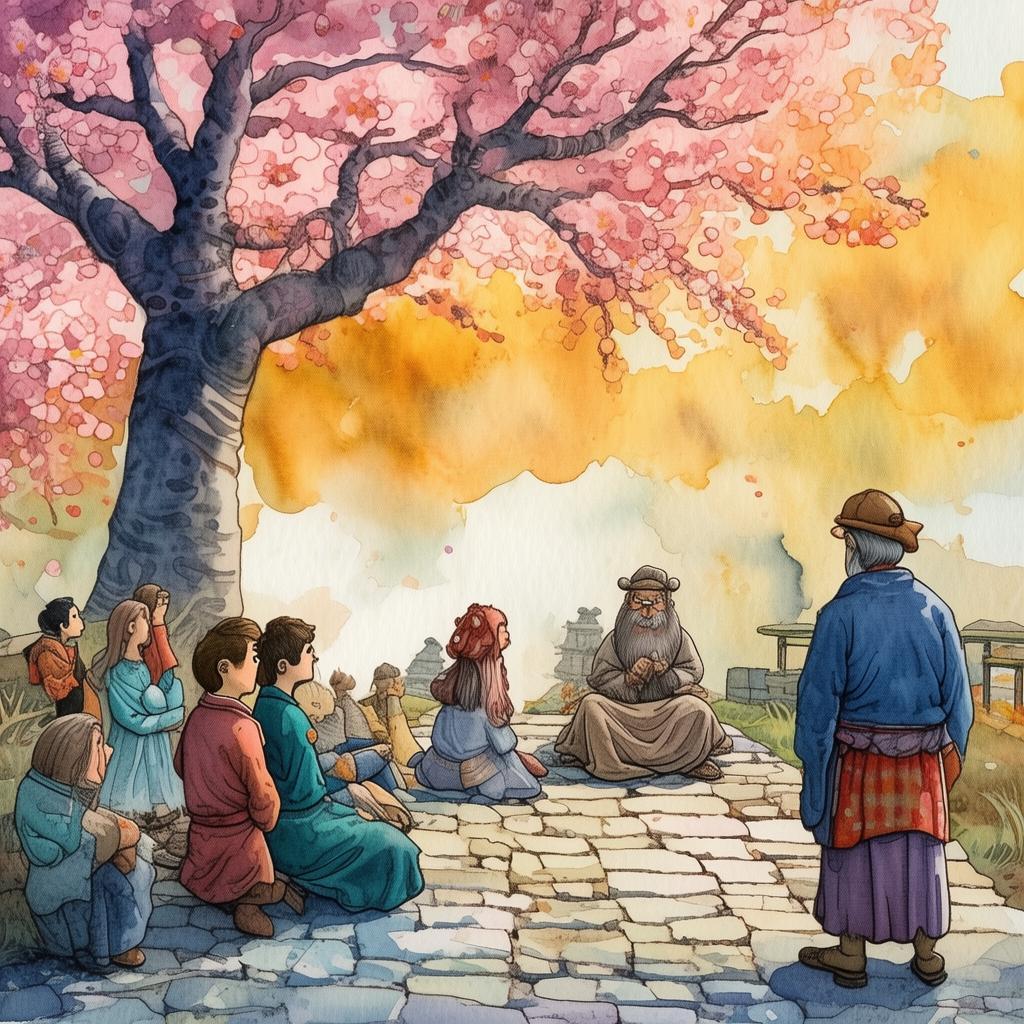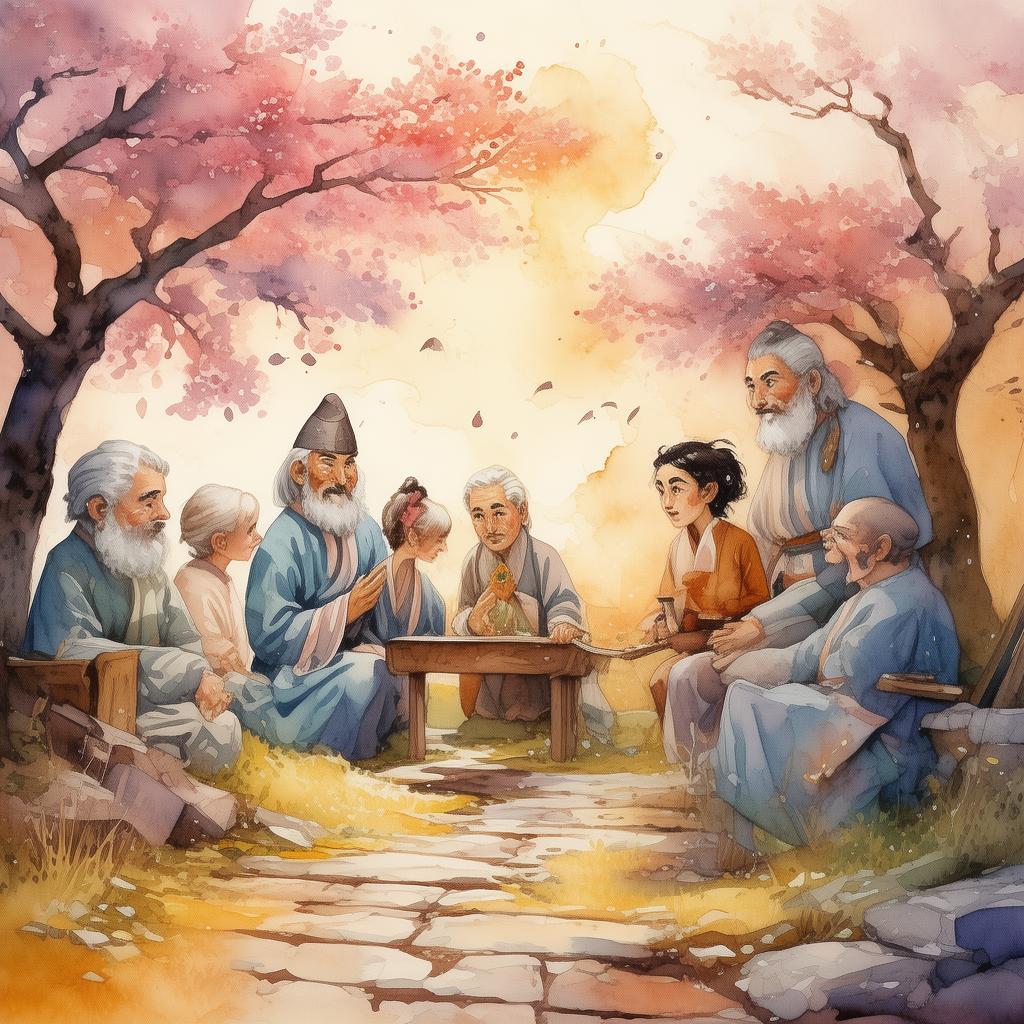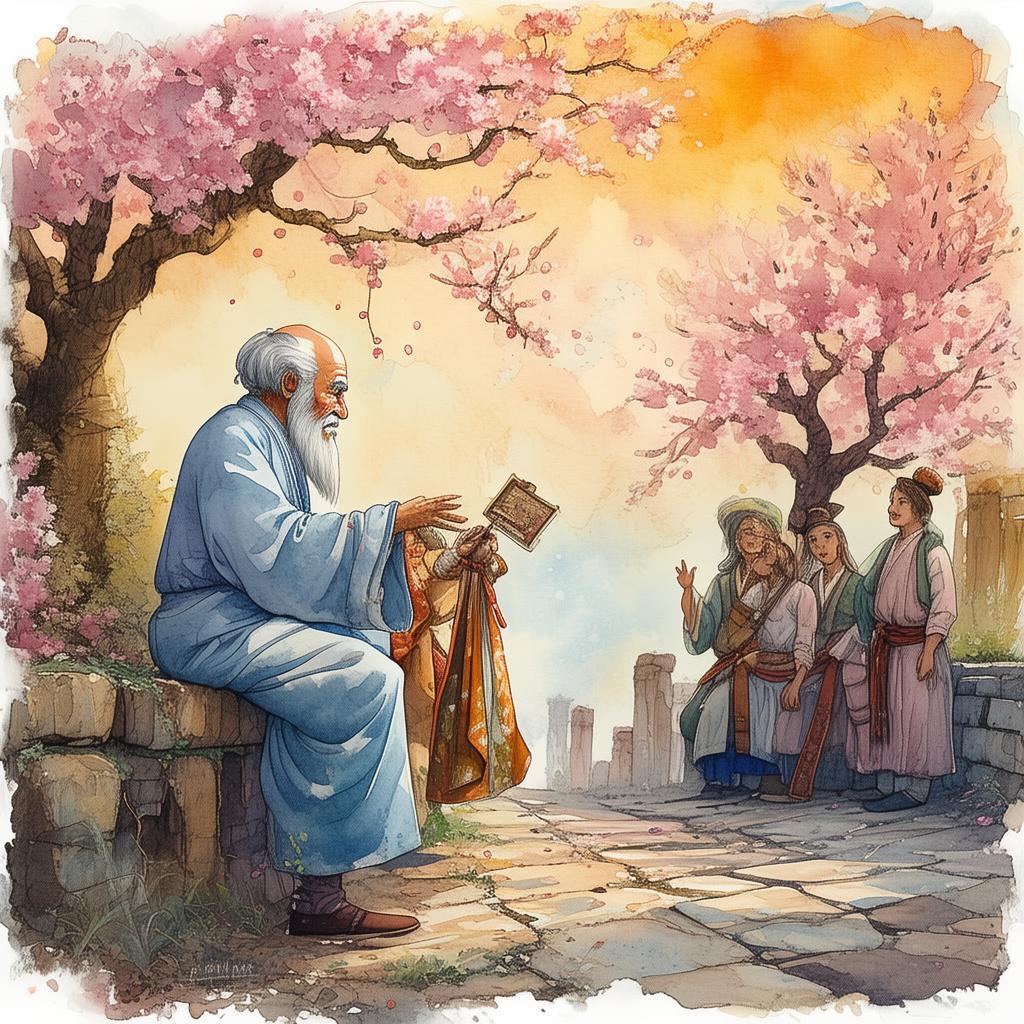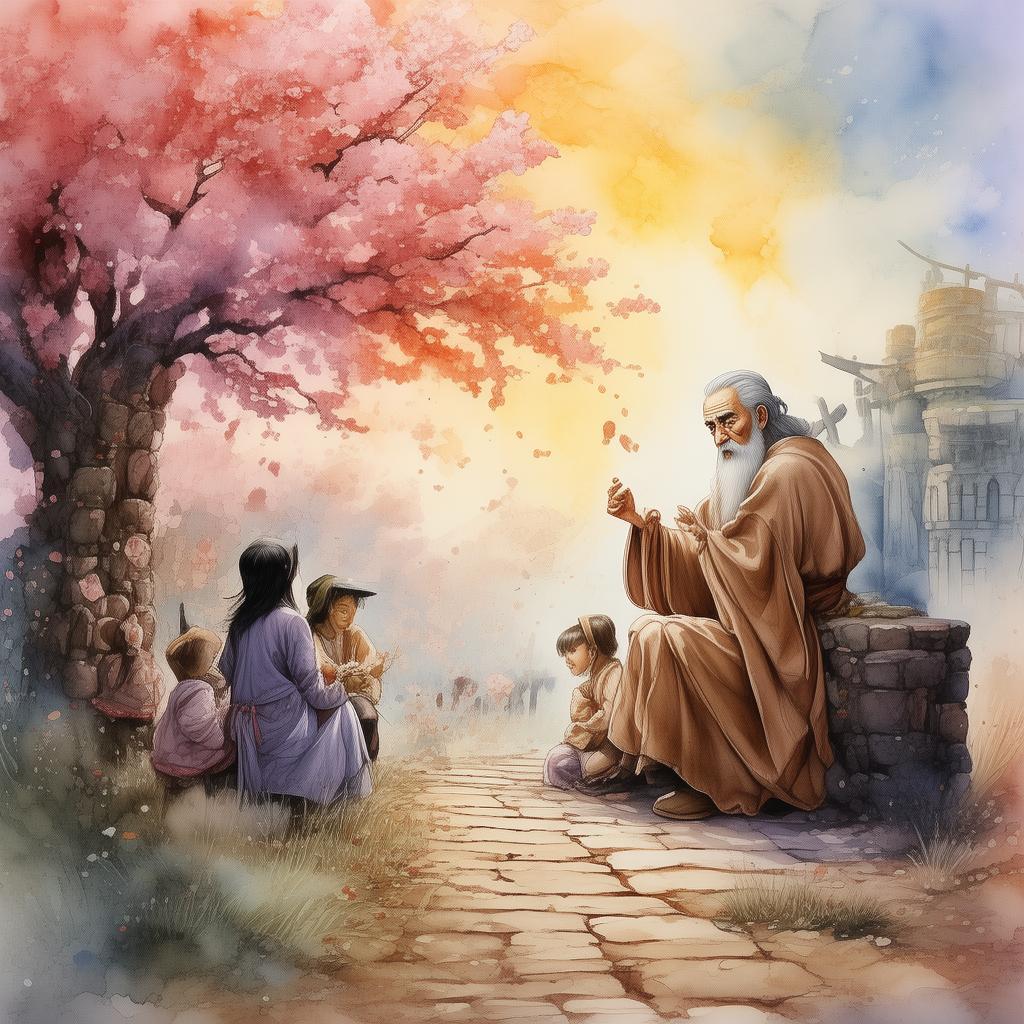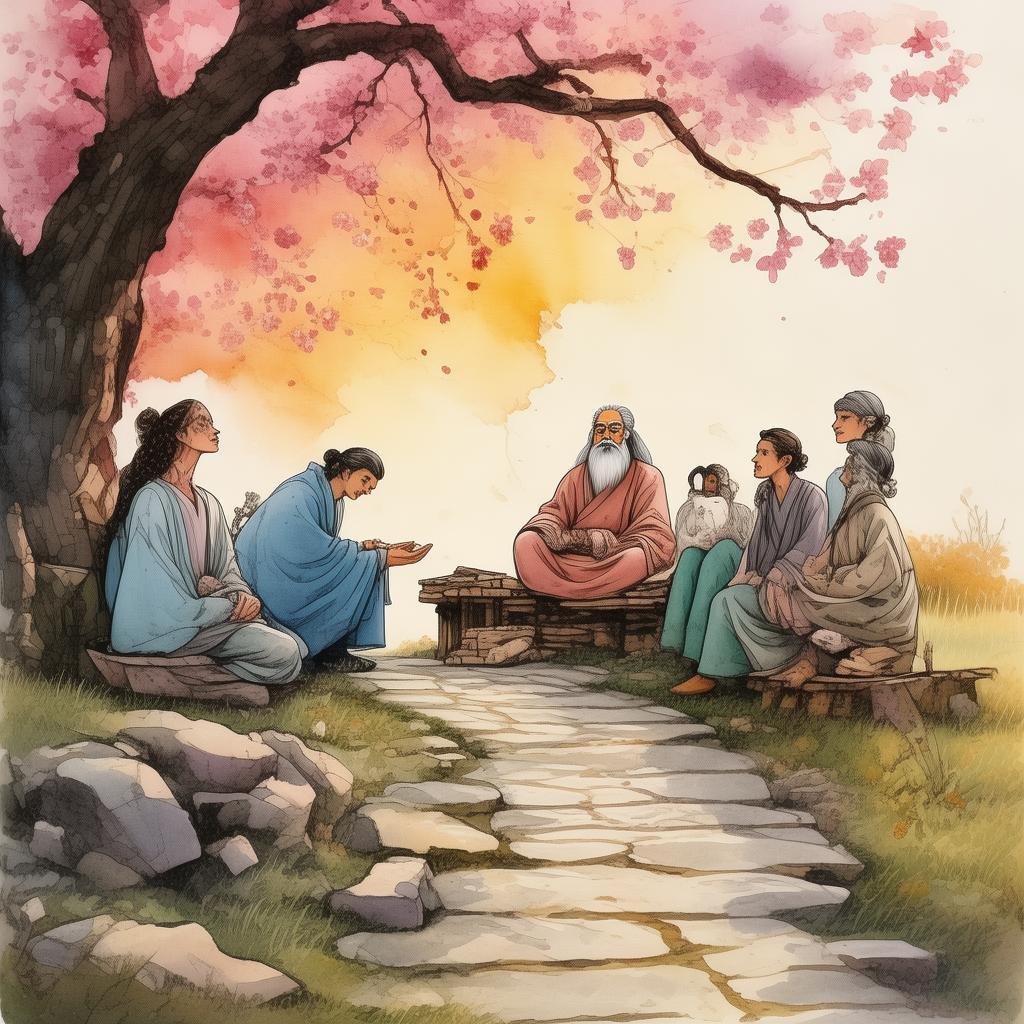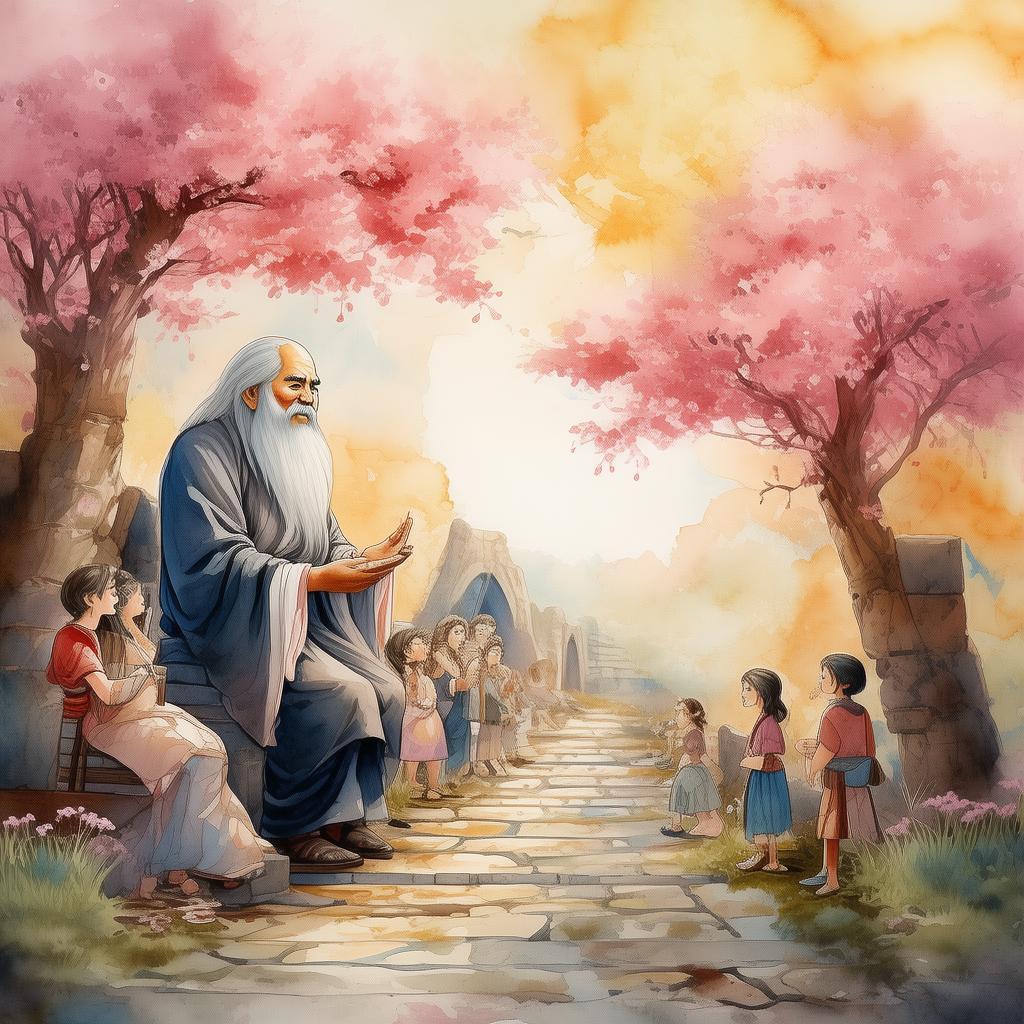Whispers of the Bamboo and the Alchemist's Secret
In the heart of ancient China, nestled between towering mountains and a serene lake, there stood a village that was unlike any other. The villagers spoke of the bamboo that whispered secrets to those who would listen, and of the alchemist who could turn base metals into gold. It was said that the alchemist's knowledge was as vast as the bamboo's whispers, and those who sought his wisdom were often met with riddles that seemed to come from the very earth itself.
Among the villagers was a young man named Jing, whose life was as ordinary as the rice fields that surrounded the village. Jing was known for his quick wit and his love for the bamboo that grew along the banks of the lake. He spent his days tending to the fields and his nights listening to the bamboo's whispers, which he believed were the voices of the spirits of the land.
One evening, as Jing sat by the lake, he heard a voice call his name. It was the voice of the alchemist, who had been a legend in the village for as long as anyone could remember. The alchemist offered Jing a proposition: he would reveal the secret of the bamboo's whispers if Jing agreed to solve a series of riddles that had baffled him for years.
Jing, driven by curiosity and a desire to understand the world beyond the village, accepted the challenge. The alchemist presented him with the first riddle: "I am not alive, yet I grow; I do not have lungs, yet I need air; I do not have a mouth, yet water kills me. What am I?"
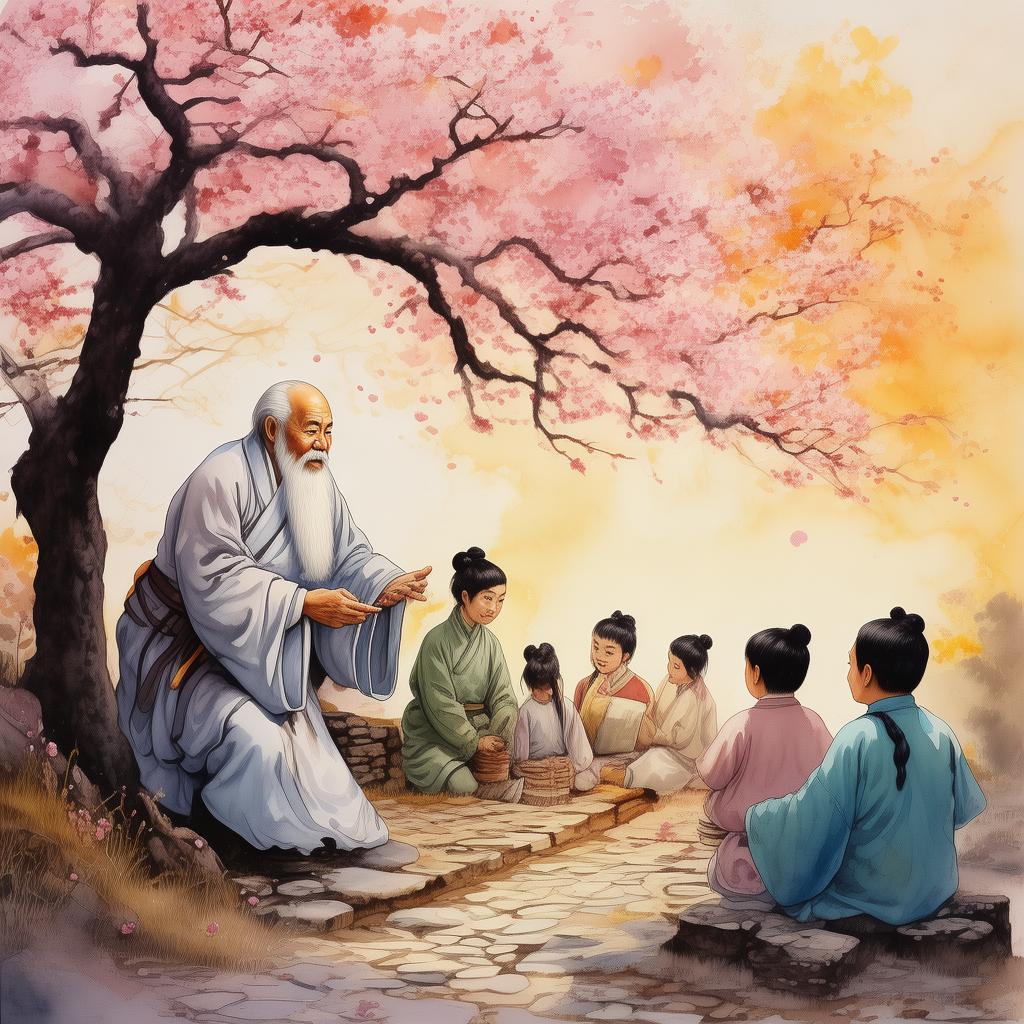
Jing pondered the riddle for days, and as he walked through the bamboo forest, he realized the answer was the bamboo itself. The bamboo grew, needed air, and could be killed by water—just as the villagers spoke of the bamboo's whispers.
The alchemist smiled, pleased with Jing's insight, and presented him with the next riddle: "I am not a bird, yet I fly; I am not a fish, yet I swim; I am not a tree, yet I grow. What am I?"
Jing wandered through the village, observing the villagers and their daily lives. He noticed that the children played a game where they would mimic the sounds of birds, fish, and trees. It was the game of life, he realized, and the answer to the riddle was the cycle of life itself.
The alchemist nodded again, and with each riddle, Jing's understanding of the world around him deepened. He learned about the balance of nature, the interconnectedness of all living things, and the eternal cycle of birth, death, and rebirth.
Finally, the alchemist revealed the greatest secret of all: the bamboo's whispers were not the voices of spirits, but the collective wisdom of the earth itself. The bamboo, with its hollow stems, was a natural resonator, amplifying the whispers of the earth's secrets.
Jing was overjoyed, but he knew that with this knowledge came great responsibility. He returned to the village, determined to share the wisdom he had gained. However, he soon discovered that the villagers were not as eager to embrace the truth as he had hoped.
The alchemist had warned him of this, explaining that the villagers were bound by tradition and fear of the unknown. Jing faced a difficult choice: he could either reveal the truth and risk the wrath of the village or keep the secret and let the wisdom of the earth remain untapped.
After much contemplation, Jing decided to act as a bridge between the old and the new. He began to weave the wisdom of the earth into the daily lives of the villagers, teaching them about the balance of nature and the importance of living in harmony with the world around them.
As the seasons changed, the village began to flourish. The rice fields produced bountiful harvests, and the villagers learned to respect the land that sustained them. Jing's actions had brought about a transformation, and the bamboo's whispers were no longer just a legend but a guiding force in the village.
In the end, Jing realized that the true power of the bamboo's whispers and the alchemist's knowledge was not in the secrets they held, but in the wisdom they imparted. It was through understanding and acceptance that the villagers could truly thrive.
And so, the village of the bamboo and the alchemist became a beacon of harmony, where the whispers of the earth and the wisdom of the alchemist were cherished and passed down through generations. Jing's legacy lived on, not as a man who solved riddles, but as a bridge between the ancient and the modern, a whisperer of wisdom, and a guardian of the earth's secrets.
✨ Original Statement ✨
All articles published on this website (including but not limited to text, images, videos, and other content) are original or authorized for reposting and are protected by relevant laws. Without the explicit written permission of this website, no individual or organization may copy, modify, repost, or use the content for commercial purposes.
If you need to quote or cooperate, please contact this site for authorization. We reserve the right to pursue legal responsibility for any unauthorized use.
Hereby declared.
